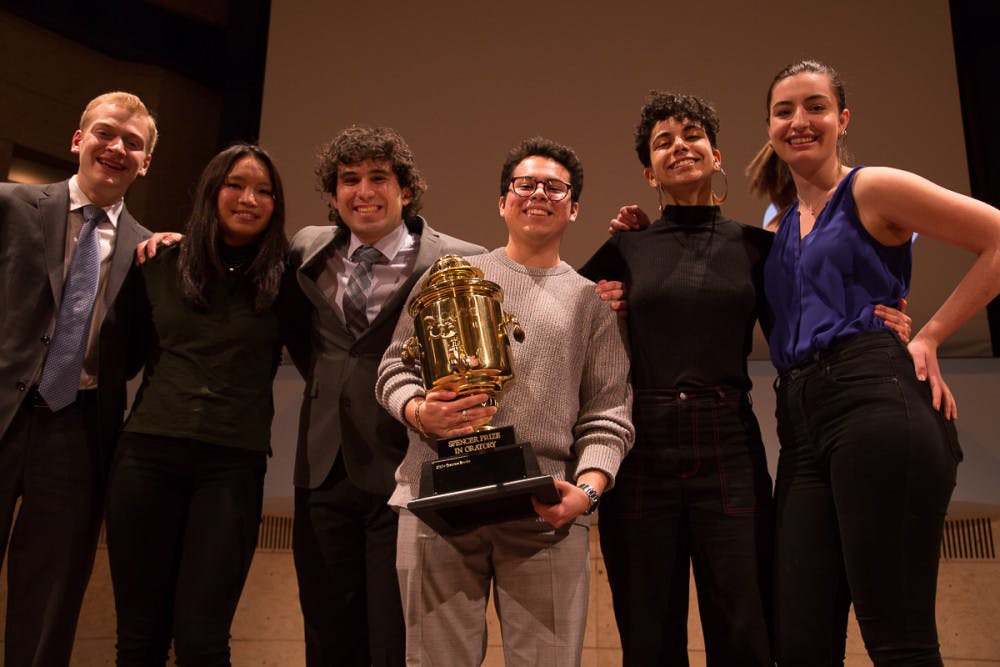[gallery ids="43349,43358,43357,43356,43355,43354,43353,43352,43351,43350,43348"]
What do Hinduism, accents, deafness, antibiotics, poverty and identity have in common? They were all topics addressed by the six finalists for the first-year Spencer Prize for Oratory who competed for the Grand Prize last Tuesday, Feb. 19 in the Robison Concert Hall at the Mahaney Arts Center.
Contestants Roni Lezama, Sophie Hochman, Regina Fontanelli, Jack Rudnick, Justin Celebi and Ellie Thomson are all members of the Class of 2022. They were tasked with connecting a concept they learned in a Middlebury class to something they cared about. Lezama secured the trophy for his speech about his father, who emigrated from Mexico, the English language and power.
The Spencer Prize process began in the fall, when faculty members nominated students they felt had exceptional public speaking skills to be a part of the Oratory Now-sponsored event. Students competed at the Commons level first, and the five champions — as well as one “wild card” winner — competed for the Grand Prize last Tuesday. Lezama was the wild card champion, Hochman represented Wonnacott, Fontanelli from Brainerd, Rudnick from Cook, Celebi from Ross and Thomson from Atwater.
The topics covered a diverse array of subjects, all united by the passion the speakers had for their particular issues.
“The sheer variety of people nominated, and of topics covered, meant that we had a cool dynamic going; there was a real sense of mutual respect among us,” said Hochman, who spoke about the connection between the principles of Hinduism and reform of the prison system.
Other speeches included Thomson’s about adoption and identity, Fontanelli’s discussion of privilege and poverty in bootstrap America, Rudnick’s speech about antibiotics and over-prescription, and Celebi’s about deafness and the border between disabled and able-bodied people.
“The best part for me was the process of writing that first speech, of connecting something I learned in class to something I care about, and realizing that I actually had ideas I wanted to express,” Hochman said.
Lezama dedicated his speech to his father and focused on languages, accents, perception and power in the United States. It was inspired by conversations in his first-year seminar, Language and Social Justice.
With the content of his speech in mind, it’s not surprising that Lezama was appreciative of the freedom afforded to the speakers throughout the process.
“There wasn’t a point when they wanted to change our speaking styles or points,” he said. “They heavily believed in us being our authentic selves, and I personally really appreciated that.”

Riley Board '22 is the Editor in Chief of The Campus. She previously served as a Managing Editor, News Editor, Arts & Academics Editor and writer.
She is majoring in Linguistics as an Independent Scholar and is an English minor on the Creative Writing Track.
Board has worked as a writer at Smithsonian Folklife Magazine and as a reporter for The Burlington Free Press. Currently, she is a 2021-2022 Kellogg Fellow working on her linguistics thesis. In her free time, you can find her roller skating in E-Lot or watching the same sitcoms over and over again.




